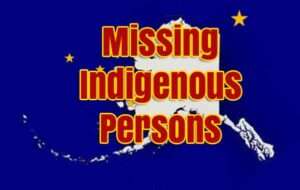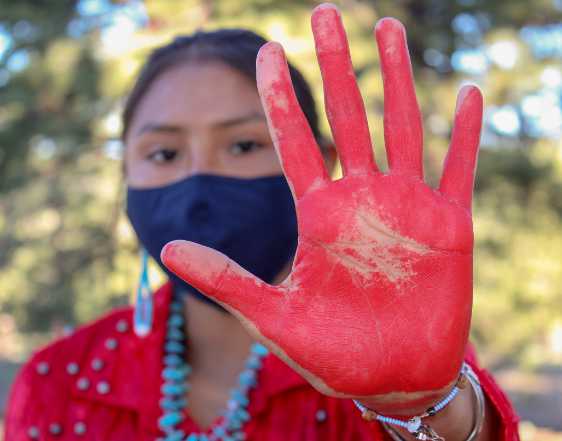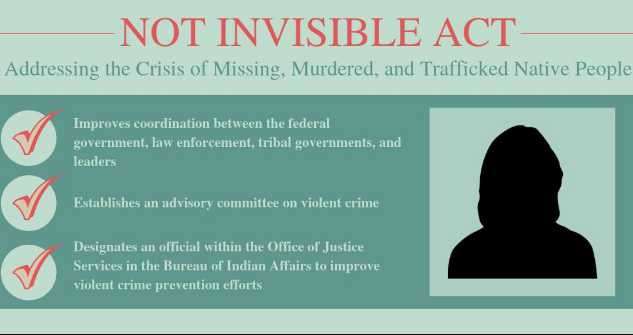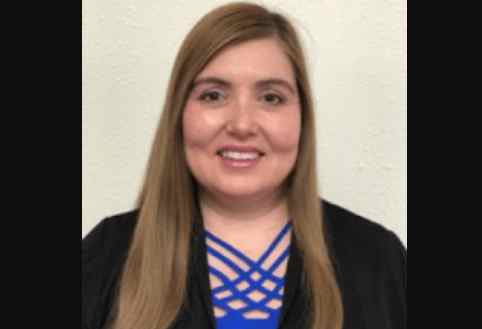The U.S. Attorney for Alaska announces appointment of Regional MMIP coordinator, discusses rural justice.
 WASHINGTON – The Justice Department joins its partners across the federal government, as well as people throughout Alaska Native and American Indian communities, in recognizing May 5 as National Missing or Murdered Indigenous Persons (MMIP) Awareness Day.
WASHINGTON – The Justice Department joins its partners across the federal government, as well as people throughout Alaska Native and American Indian communities, in recognizing May 5 as National Missing or Murdered Indigenous Persons (MMIP) Awareness Day.
In recognition of MMIP Awareness Day, Attorney General Merrick B. Garland highlighted ongoing efforts to tackle the MMIP and human trafficking crises in American Indian and Alaska Native communities, and other pressing public safety challenges, like the fentanyl crisis, in Tribal communities.
“There is still so much more to do in the face of persistently high levels of violence that Tribal communities have endured for generations, and that women and girls, particularly, have endured,” said Attorney General Merrick B. Garland. “In carrying out our work, we seek to honor those who are still missing, those who were stolen from their communities, and their loved ones who are left with unimaginable pain. Tribal communities deserve safety, and they deserve justice. This day challenges all of us at the Justice Department to double down on our efforts, and to be true partners with Tribal communities as we seek to end this crisis.”
Justice Department Prioritization of MMIP Cases
Last July, the Justice Department announced the creation of the Missing or Murdered Indigenous Persons (MMIP) Regional Outreach Program, which permanently places 10 attorneys and coordinators in five designated regions across the United States to aid in the prevention and response to missing or murdered Indigenous people. The five regions include the Northwest, Southwest, Great Plains, Great Lakes, and Southeast Regions.
U.S. Attorney S. Lane Tucker of the District of Alaska is pleased to announce that Ingrid Goodyear was appointed as the permanent MMIP Coordinator for the Great Plains Region, with includes Alaska, on April 5, 2024, after serving nearly four years as the contracted MMIP coordinator for Alaska. Since her initial appointment in July 2020, she has worked collaboratively with Federal, State, local and Tribal law enforcement, victim services and Tribal agencies to address MMIP in Alaska. For MMIP Awareness Day, Mrs. Goodyear will be joining the Nome community for an awareness walk and speaking event on May 5.
Most recently, Mrs. Goodyear supported the Tanana Chiefs Conference and Fairbanks Native Association in developing and adopting the First Urban MMIP Tribal Community Response Plan (TCRP) for the Fairbanks and TCC region, which provides a unified plan to prevent and respond to MMIP situations for the region’s 39 villages. For roughly four years, Mrs. Goodyear has also worked with partners to create a multidisciplinary working group in Alaska solely focused on working collaboratively to address the MMIP issue through trainings, education and consultations in all regions of the state.
The district also recently hired three Tribal Assistant U.S. Attorneys who will focus solely on prosecuting cases in rural Alaska that address public safety threats impacting rural villages, including drug trafficking or firearm offenses. In January, the district announced that 53 people were charged following an investigation by a multi-jurisdictional task force into a transnational organized crime ring that targeted Alaska, allegedly trafficking kilograms of deadly drugs, including fentanyl, to rural Alaska Native communities and villages like Goodnews Bay and Tyonek, two communities with populations of under 200 people.
“Mrs. Goodyear’s permanent appointment and the hiring of our new Tribal AUSAs are additional steps in my office’s unwavering commitment to address MMIP and violent crime in Alaska,” said U.S. Attorney Tucker. “In the over three years that Mrs. Goodyear has been with our office as the district MMIP coordinator, she has had a tremendous impact on bringing partners and communities together to have crucial conversations about an issue that is gripping our state. Moving forward, we are excited to have our full team of dedicated professionals working toward progress for MMIP and Tribal justice in Alaska.”
The MMIP Regional Outreach Program prioritizes MMIP cases consistent with the Deputy Attorney General’s July 2022 directive to U.S. Attorneys’ offices promoting public safety in Indian country. The program fulfills the Justice Department’s promise to dedicate new personnel to MMIP consistent with Executive Order 14053, Improving Public Safety and Criminal Justice for Native Americans and Addressing the Crisis of Missing or Murdered Indigenous People, and the Department’s Federal Law Enforcement Strategy to Prevent and respond to Violence Against American Indians and Alaska Natives, Including to Address Missing or Murdered Indigenous Persons issued in July 2022.
Not Invisible Act Commission Response
The Department’s work to respond to the MMIP crisis is a whole-of-department effort. In March, the Departments of Justice and the Interior released their joint response to the Not Invisible Act Commission’s recommendations on how to combat the missing or murdered Indigenous peoples (MMIP) and human trafficking crisis. The NIAC response, announced by Attorney General Garland during a visit to the Crow Nation, recognizes that more must be done across the federal government to resolve this longstanding crisis and support healing from the generational traumas that Indigenous peoples have endured throughout the history of the United States.
Addressing Violent Crime and the Fentanyl Crisis in Indian Country
As noted in the joint response to the NIAC, research suggests that certain public safety challenges faced by many American Indian and Alaska Native communities—including disproportionate violence against women, families, and children; substance abuse; drug trafficking; and labor and sex trafficking—can influence the rates of missing AI/AN persons.
Further, fentanyl poisoning and overdose deaths are the leading cause of opioid deaths throughout the United States, including Indian county, where drug-related overdose death rates for Native Americans exceeds the national rate.
Therefore, federal law enforcement components are ramping up efforts to forge stronger partnerships with federal and Tribal law enforcement partners to address violent crime and the fentanyl crisis, which exposes already vulnerable communities to greater harm.
Accessing Department of Justice Resources
Over the past year, the Department awarded $268 million in grants to help enhance Tribal justice systems and strengthen law enforcement responses. These awards have also gone toward improving the handling of child abuse cases, combating domestic and sexual violence, supporting Tribal youth programs, and strengthening victim services in Tribal communities.
For additional information about the Department of Justice’s efforts to address the MMIP crisis, please visit the Missing or Murdered Indigenous Persons section of the Tribal Safety and Justice website.
Click here for more information about reporting or identifying missing persons.
###[content id=”79272″]








